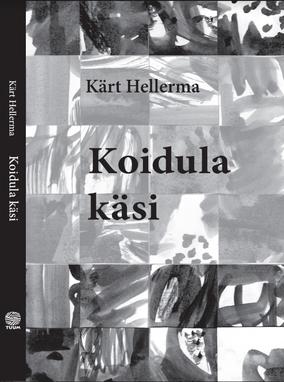Tuum, 216 pp.
ISBN 9789949743308
Kärt Hellerma’s collection Koidula’s Hand contains ten dissimilar short stories, the characters of which appear to be regular people simply getting by in life. Even so, something about them is off: a failure to adapt or come to terms with their immediate environment, common lasting values or relationship patterns; an off-putting aura or a habit of rejecting fears and obsessions. The atmosphere in each story is somewhat gusty and overcast, just like a considerable portion of springtime at Estonia’s latitude.
The individual alienating quality Hellerma’s characters possess often leads them to fall victim to malice or carelessness. At the same time, they are unexpectedly tenacious in keeping their calm as they encounter bizarre beings and phenomena that go beyond the ordinary – something we encounter frequently in Hellerma’s stories, many of which extend nearly into the realm of sci-fi. In spite of her writing’s mystical substance, Hellerma isn’t very fond of symbols or cloaked meanings, which comes as somewhat of a shame in some of the stories – readers might wish to be led around more delicately at times.
Several of Hellerma’s protagonists are united by a fear of death, and one recurrent theme is the processing of shame. As the collection’s semi-eponymous character states: “I don’t want shame. Shame is terrible, probably the very worst.” Her story “The Glass House”, in which a phone call from the narrator’s friend reveals details of a past trip from newly re-independent Estonia to Sweden, expounds upon a similar feeling: “In the photos my husband took, I was wearing these awful Soviet-era boots, black and semi-tattered. Since Swedes don’t take off their shoes when paying someone a visit, he made me keep them on inside. All around me were fine things designed with an artist’s touch, like furniture taken right out of a petite bourgeoisie lifestyle catalogue: soft-toned chairs and sofas, pink light fixtures, artificial flowers … And my filthy, appalling, broken-down footwear in stark contrast … My calling card; my true self.” In this, the author captures Eastern European shame in its most genuine and painful form. It is in the rendering of these images that Hellerma’s greatest strength indeed lies.
Helena Läks is a poet, editor, and publisher.

